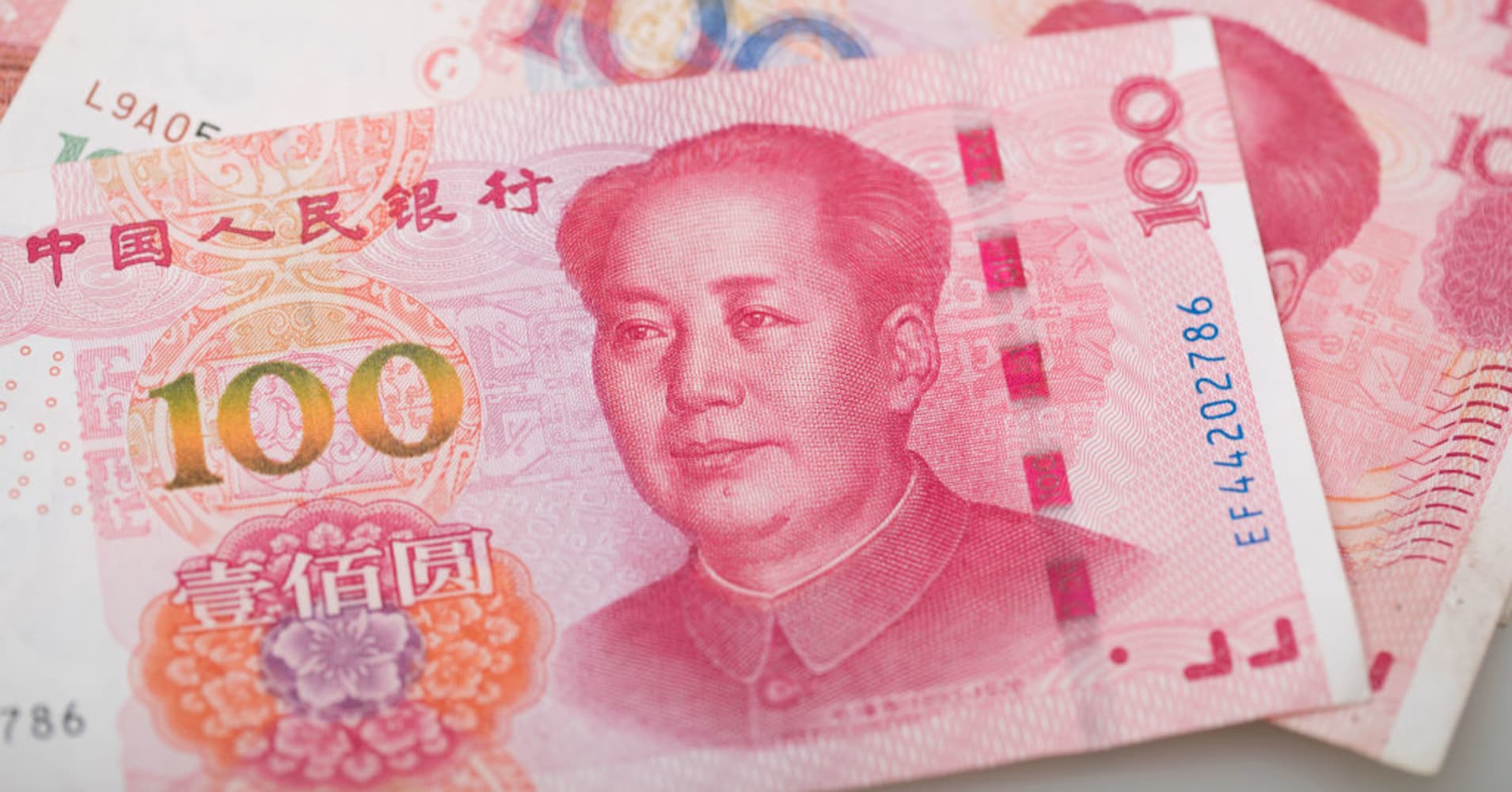QC
$ 0.00 USD
$ 0.00 USD
$ 0.00 0.00 USD
$ 0.00 USD
$ 0.00 USD
$ 0.00 USD
$ 0.00 USD
$ 0.00 USD
0.00 0.00 QC
Qcash-related information
Issue Time
2017-11-27
Platform pertained to
--
Current coin price
0.00
Market Cap
$0.00USD
Volume of Transaction
24h
$0.00USD
Circulating supply
0.00QC
Volume of Transaction
7d
$0.00USD
Change
24h
0.00%
Number of Markets
Github Messages
More
Warehouse
None
Github's IP Address
[Copy]
Codebase Size
0
Last Updated Time
2019-01-09 18:54:58
Language Involved
--
Agreement
--
Crypto token price conversion
Current Rate0
0.00USD
WikiBit Risk Alerts
1WikiBit has marked the token as air coin project for we have received overwhelming complaints that this token is a Ponzi Scheme. Please be aware of the risk!
QC Price Chart
Qcash introduction
 Markets
Markets3H
0.00%
1D
0.00%
1W
0.00%
1M
0.00%
1Y
0.00%
All
0.00%

| Aspect | Information |
| Short name | QC |
| Full name | Qcash |
| Founded year | 2018 |
| Main founders | QIAN Pro Team |
| Support exchanges | Huobi, ZB.COM |
| Storage wallet | Exodus, Atomic Wallet |
Overview of QC
QC, also known as Qcash, is a stable cryptocurrency that was initiated by the QIAN Pro Team back in 2018. It is primarily traded on exchanges such as Huobi and ZB.COM. Users can store their QC in various wallets, with popular choices including Exodus and Atomic Wallet. As a stablecoin, QC seeks to maintain a stable value, rather than experiencing significant price volatility typically associated with other cryptocurrencies.
Pros and Cons
| Pros | Cons |
| Maintains stable value | Limited usage and acceptance |
| Traded on multiple exchanges | Dependence on the stability of CNY |
| Can be stored in common wallets | Less popular compared to other stablecoins |
| Founded by experienced team | Limited Transparency |
Pros:
Maintains Stable Value: As a stablecoin, QC token is designed with the goal of achieving price stability. It attempts to offer consistency in the volatile world of cryptocurrencies, which can be advantageous in risk management.
Traded on Multiple Exchanges: QC token is listed and actively traded on multiple cryptocurrency exchanges such as Huobi and ZB.COM. This widespread availability enhances its accessibility to a larger user base.
Can Be Stored in Common Wallets: QC tokens have the flexibility of being stored in popular commonly used crypto wallets such as Exodus and Atomic Wallet. This gives users a range of choices to select from based on their specific preferences and requirements.
Founded by Experienced Team: The QIAN Pro Team, known for their experience in the crypto industry, is the founding team behind QC Token. This might increase trust and reliability in the token due to their known expertise.
Cons:
Limited Usage and Acceptance: Despite qualifying as a stablecoin, the usage and acceptance of QC token seem limited when compared to other, more popular stablecoins.
Dependence on the Stability of CNY: As the QC token is pegged to the Chinese Yuan (CNY), any fluctuation and instability in the CNY value could impact the stability of the QC token causing potential risks for investors.
Less Popular Compared to Other Stablecoins: Relative to other stablecoins, the QC token is less well-known and less frequently used. This may limit its effectiveness and acceptance in the crypto market.
Limited Transparency: In contrast to many other cryptocurrencies that offer a high level of transparency regarding their operations, the QC Token's operations are relatively less transparent, which could be a concern for potential users or investors.
Circulation of QC
As of September 8, 2023, there are 1,873,000,000 QC tokens in circulation. The total supply of QC tokens is 10,000,000,000.

As of September 7, 2023, 8:37 AM PST, the 24-hour trading volume of Qcash (QC) is $0 USD. The current price is $0.081149 USD. The all-time high price of QC was $0.170000 USD on January 20, 2023. The all-time low price was $0.000000 USD on September 1, 2022.
Here is a table of the historical prices of QC:
| Date | Price (USD) |
| 2023-09-07 | $0.081149 |
| 2023-09-06 | $0.081149 |
| 2023-09-05 | $0.081149 |
| 2023-09-04 | $0.081149 |
| 2023-09-03 | $0.081149 |
It appears that Qcash (QC) has low trading volume and price, possibly due to its status as a new cryptocurrency or lack of widespread popularity.
What Makes QC Unique?
QC, also known as Qcash, symbolizes an innovative approach in the cryptocurrency field as it is a stablecoin that is pegged to the Chinese Yuan (CNY). A stablecoin is a type of cryptocurrency that is designed to maintain a stable value, acting as a “safe haven” in the extremely volatile digital currency market. Unlike traditional cryptocurrencies like Bitcoin or Ethereum, which have values that fluctually wildly, QC's value stays relatively stable making it useful for specific transactional purposes.
One of the primary distinctive features of QC is its peg to the Chinese Yuan. Most stablecoins are tethered to the US Dollar, making QC unique in providing a stable digital alternative to the widely used Chinese currency. This could potentially provide stability for investors and traders focused on the Chinese market. However, this also means that QC's stability is reliant on the stability of the CNY.
Furthermore, aside from being traded on various crypto exchanges, QC also allows for a more integrated approach to value transfer in the digital field. It can be stored in commonly used wallets like Exodus and Atomic Wallet, enhancing user convenience.
So, while embracing some features of traditional cryptocurrencies, QC's innovation mostly lies within its main purpose as a stablecoin and its particular tether to the Chinese Yuan. This makes it stand out from other cryptocurrencies that aren't pegged to any asset and have much higher price volatility. However, as with any innovation, the value and success of the QC token rely heavily on market acceptance and usage.
How Does QC Work?
QC is different from other well-known cryptocurrencies like Bitcoin in its operational mode and principle due to its status as a stablecoin.
QC, or Qcash, is pegged to the Chinese Yuan (CNY), with the aim aiming to maintain a stable value in relation to that fiat currency. This differs greatly from cryptocurrencies like Bitcoin, whose value is determined by supply and demand dynamics in the market and can be very volatile. QC is controlled by off-chain assets equivalent to its on-market representation, held by the issuing organization.

Unlike Bitcoin, which uses Proof of Work (PoW) protocol and requires the miners to solve complex mathematical problems using mining software, QC doesn't follow a mining concept as such. It's a fully pre-mined digital asset. Its supply is influenced and adjusted in response to market demand, backed by adequate reserves held by the issuer.
As discussed, QC doesn't engage in the traditional cryptocurrency mining process. Therefore, aspects such as mining speed and equipment aren't relevant to QC. Most cryptocurrencies that support mining, e.g. Bitcoin, can require high-power computer hardware and consume a lot of electricity for mining operations. QC avoids these issues with its pre-mined approach.
QC's transaction speed is relatively fast because it isn't reliant on traditional mining to validate transactions, as Bitcoin does. Transactions take only a few seconds to confirm, which is vastly quicker than the 10 minutes an average Bitcoin transaction might take.
Given these differences, it's clear that QC operates on a substantially different principle compared to mineable cryptocurrencies like Bitcoin. Its model situates itself more as an asset-backed digital fiat currency, rather than a decentralized, network-secured commodity asset.
Exchanges to Buy QC
There are several well-established cryptocurrency exchanges that support the buying and selling of QC, also known as Qcash.
One of the primary exchanges where QC is listed is Huobi, one of the world's largest cryptocurrency exchanges where users can buy, sell and trade a wide variety of cryptocurrencies, including QC.
Another exchange supporting QC is ZB.COM, a world-leading blockchain asset trading platform that has a safe and reliable digital asset trading platform for professional traders. Users can transact and manage their QC holdings on ZB.COM.

Again, these are not the only exchanges on which QC is available. Users can choose the exchange that fits best with their trading habits and requirements. Please note that while these platforms support QC, the availability might depend on the users' specific geographic location and local regulations.
How to Store QC?
QC, or Qcash, as with other cryptocurrencies, can be stored in digital wallets. Digital wallets allow users to manage and handle their cryptocurrency holdings in a secure and accessible environment.
Among the digital wallets that support QC, two prominent ones are Exodus and Atomic Wallet:
1. Exodus - Exodus is a software-based digital wallet that provides a simple interface for users to store, manage, and exchange multiple cryptocurrencies, including QC. It is accessible both on desktop and mobile devices and is known for its intuitive design and robust security measures.
2. Atomic Wallet - Atomic Wallet is another digital wallet which supports QC. It's a decentralized wallet that supports over 300 different cryptocurrencies. It provides a feature to buy cryptocurrency with a credit card and allows for atomic swaps, which is direct, peer-to-peer trading of one cryptocurrency for another without requiring an exchange.
Please note that these wallet choices should be made based on factors including user needs, security, convenience, and support available. Additionally, the handling of digital wallets requires being cautious and vigilant with security details like private keys and passwords to ensure the safe keeping of the cryptocurrencies.
Should You Buy QC?
Determining suitability for buying QC, or any type of cryptocurrency, is highly dependent on an individual's financial goals, risk tolerance, and understanding of the cryptocurrency market.
1. Seekers of Stable Value: As a stablecoin, QC maintains a relatively stable value as it is pegged to the Chinese Yuan (CNY). This could be suitable for those who want exposure to the digital currency realm, but with lesser volatility compared to cryptocurrencies like Bitcoin or Ethereum.
2. Investors Focused on Chinese Market: Since QC is tied to the CNY, it could be of particular interest for traders or investors who have a focus on the Chinese market or who make frequent transactions including the CNY.
3. Digital Asset Diversification: Those looking to diversify their digital asset portfolio might also consider adding QC, especially if they're looking for a stablecoin alternative to the more commonly used ones pegged to the US Dollar.
Some advice for those interested in buying QC:
1. Understand the Market: As with any investment, it is important to understand what you're investing in. Make sure you thoroughly research QC, the principles it operates on, and its market performance before making a decision.
2. Check Legalities: It's crucial to verify the legal status of cryptocurrency investments in your particular jurisdiction. Cryptocurrency regulations can vary greatly from one place to another.
3. Consider Security: Make sure you have a secure and reliable digital wallet to store your QC. Security measures like strong passwords, enabling 2FA (Two-factor Authentication), and safekeeping backup/recovery phrases are crucial.
4. Follow Responsible Investment Practices: Do not invest more than you are willing to lose. Cryptocurrencies, even stablecoins, can be risky and highly volatile.
Always consult with a financial advisor or conduct thorough research before getting into any form of investment.
Conclusion
QC, short for Qcash, is a unique stablecoin that operates differently from many other cryptocurrencies. As a stablecoin, its principal aim is to maintain a stable value, in this case, pegged to the Chinese Yuan. This focus on stability does mark it as unique in the extremely volatile world of cryptocurrencies.
However, as with any cryptocurrency, the development prospects and its potential to make money or appreciate in value is largely dependent on a variety of factors. These can include market demand, regulatory considerations, overall market conditions, and the stability of the asset to which it is pegged (in this case the CNY).
As a stablecoin, QC is designed more for maintaining value and facilitating transactions rather than appreciating in value like non-stable cryptocurrencies might. Therefore, whilst it may not offer the same potential for appreciation as other cryptocurrencies, it might offer a level of stability that could appeal to certain users or investors, particularly those with interest in the Chinese market.
It is always important for prospective investors to conduct thorough research and understand their own risk tolerance and investment goals before getting involved with any form of cryptocurrency.
FAQs
Q: What is the primary purpose of the QC token?
A: The QC token, also known as Qcash, is a stablecoin designed to maintain a consistent value, specifically pegged to the Chinese Yuan.
Q: Who initiated the creation of the QC token?
A: The QC token was initiated by the QIAN Pro Team in 2018.
Q: On which digital trading platforms can one acquire and trade QC tokens?
A: QC tokens can be traded on a variety of platforms, with Huobi and ZB.COM being among the most prominent ones.
Q: Where can I store my QC tokens securely?
A: QC tokens can be stored in various cryptocurrency wallets, with Exodus and Atomic Wallet being popular choices among users.
Q: Is it possible for the QC token to appreciate in value like Bitcoin or Ethereum?
A: As a stablecoin, the primary purpose of QC is to maintain a stable value rather than significant appreciation, distinctive from typical cryptocurrencies like Bitcoin or Ethereum.
Q: How does the operational principle of QC differ from other mineable cryptocurrencies?
A: Unlike mineable cryptocurrencies such as Bitcoin, QC is a pre-mined stablecoin pegged to the value of the Chinese Yuan, bypassing the traditional mining process.
Q: Is QC's value highly volatile?
A: No, as a stablecoin, QC is designed to maintain a stable value, offering a level of consistency amidst the volatile cryptocurrency market.
Q: Which parties might be particularly interested in the QC token?
A: Parties interested in a stable digital currency tied to the Chinese Yuan or those seeking to diversify their digital portfolio with a stablecoin might be interested in QC.



6 ratings